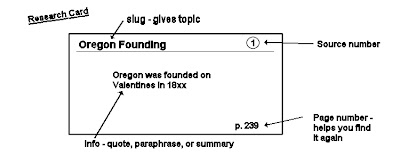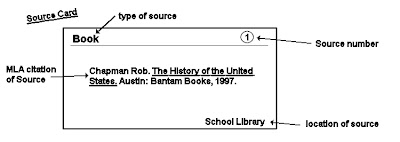Background Information
Setting
Ancient Rome 44 B.C.
The play takes place before Rome developed into an empire. Julius Caesar has just defeated Pompey after a long civil war. He returns to Rome triumphantly and is in a position to take power. Some people are concerned because dictators have taken power before.
Julius Caesar, was a Roman military and political leader and one of the most influential men in world history. He played a critical role in the transformation of the Roman Republic into the Roman Empire. His conquest of Gaul extended the Roman world all the way to the Atlantic Ocean, and he was also responsible for the first Roman invasion of Britain in 55 BC.
Leading his legions across Rubicon, Caesar sparked civil war in 49 BC that left him the undisputed master of the Roman world. After assuming control of the government, he began extensive reforms of Roman society and government. He was proclaimed dictator for life, and he heavily centralized the bureaucracy of the Republic. This forced the hand of a friend of Caesar, Marcus Junius Brutus, who then conspired with others to murder the dictator and restore the Republic. This dramatic assassination occurred on the Ides of March (March 15th) in 44 BC and led to another Roman civil war. In 42 BC, two years after his assassination, the Roman Senate officially sanctified him as one of the Roman deities.
Caesar's military campaigns are known in detail from his own written Commentaries (Commentarii), and many details of his life are recorded by later historians, such as Appian, Suetonius, Plutarch, Cassius Dio and Strabo. Other information can be gleaned from other contemporary sources, such as the letters and speeches of Caesar's political rival Cicero, the poetry of Catullus and the writings of the historian Sallust.
BRUTUS
Marcus Junius Brutus (85 BC – 42 BC), or Quintus Servilius Caepio Brutus, was a Roman senator of the late Roman Republic. Though in popular culture, it is believed that Brutus was the sole assasin of Julius Caesar, historically he was not alone in the dictator's assasination conspiracy, but was among possibly up to sixty men.
Other Brutus Links
1 Life
2 Chronology
3 Brutus in popular culture
3.1 Influence
3.2 Fiction
3.3 Drama
4 Family tree
5 Notes
6 External links
Drama
In Shakespeare's play Julius Caesar, actors such as James Mason, Jason Robards and Richard Pasco have played the role of Marcus Brutus in television productions and films.
In Julius Caesar he is portrayed by Ian Duncan.
A fictionalised Marcus Junius Brutus appears in the 2005 television series Rome, played by
Tobias Menzies.
Marcus Brutus also appears in the highly fictionalised 2005 six-part mini series Empire played by James Frain.
Characters
A great Roman general who has recently returned to Rome after a military victory in Spain. Julius Caesar is not the main character of the play that bears his name; Brutus has over four times as many lines, and the play does not show us Caesar's point of view. Nonetheless, virtually every other character is preoccupied with Caesar—specifically, with the possibility that Caesar may soon become king. If Caesar were to become king, it would mean the end of Rome's republican system of government, in which senators, representing the citizens of Rome, wield most of the power. To noblemen like Brutus and Cassius, who consider themselves the equals of Caesar or any other citizen, Caesar's coronation would mean they would no longer be free men but rather slaves. Caesar never explicitly says that he wants to be king—he even refuses the crown three times in a dramatic public display—but everything he says and does demonstrates that he regards himself as special and superior to other mortals. In his own mind, he seems already to be an absolute ruler.
A high-ranking, well-regarded Roman nobleman who participates in a conspiracy to assassinate Caesar. Brutus is motivated by his sense of honor, which requires him to place the good of Rome above his own personal interests or feelings. Thus, he plots against Caesar in order to preserve the republic even though he loves and admires Caesar personally. While the other conspirators act out of envy and rivalry, only Brutus truly believes that Caesar's death will benefit Rome. Brutus's sense of honor is also his weakness, as he tends to assume that his fellow Romans are as highminded as he is, which makes it easy for others to manipulate him.
A loyal friend of Caesar's. In contrast to the self-disciplined Brutus, Antony is notoriously impulsive and pleasure-seeking, passionate rather than principled. He is extremely spontaneous and lives in the present moment. As resourceful as he is unscrupulous, Antony proves to be a dangerous enemy of Brutus and the other conspirators.
A talented general and longtime acquaintance of Caesar. Cassius resents the fact that the Roman populace has come to revere Caesar almost as a god. He slyly leads Brutus to believe that Caesar has become too powerful and must die, finally converting Brutus to his cause by sending him forged letters claiming that the Roman people support the death of Caesar. Impulsive and unscrupulous like Antony, Cassius harbors no illusions about the way the political world works. A shrewd opportunist, he acts effectively but lacks integrity.
Caesar's adopted son and appointed successor. Octavius, who had been traveling abroad, returns after Caesar's death, then joins with Antony and sets off to fight Cassius and Brutus. Antony tries to control Octavius's movements, but Octavius follows his adopted father's example and emerges as the authoritative figure, paving the way for his eventual seizure of the reins of Roman government.
One of the conspirators. Casca is a tribune (an official elected to represent the common people of Rome) who resents Caesar's ambition. A rough and blunt-speaking man, Casca relates to Cassius and Brutus how Antony offered the crown to Caesar three times and how each time Caesar declined it. Casca insists, however, that Caesar was acting, manipulating the populace into believing that he has no personal ambition. Casca is the first to stab Caesar.
Caesar's wife. Calphurnia invests great authority in omens and portents. She warns Caesar against going to the Senate on the Ides of March, for she has had terrible nightmares and heard reports of many bad omens.
Brutus's wife and the daughter of a noble Roman (Cato) who took sides against Caesar. Portia, accustomed to being Brutus's confidante, is upset to find him so reluctant to speak his mind when she finds him troubled.
Two tribunes who condemn the plebeians for their fickleness in cheering Caesar when once they cheered for Caesar's enemy Pompey. Flavius and Murellus are punished for removing the decorations from Caesar's statues during Caesar's triumphal parade.
A Roman senator renowned for his oratorical skill. Cicero speaks at Caesar's triumphal parade. He later dies at the order of Antony, Octavius, and Lepidus.
The third member of Antony and Octavius's coalition. Though Antony has a low opinion of Lepidus, Octavius trusts Lepidus's loyalty.
A member of the conspiracy. Decius convinces Caesar that Calphurnia misinterpreted her dire nightmares and that, in fact, no danger awaits him at the Senate. Decius leads Caesar right into the hands of the conspirators.
Another Look at Key Characters
Julius Caesar
Although Caesar was one of the strongest individuals in history, Shakespeare presents him with a number of weaknesses. In spite of all of these weaknesses, it is the spirit of Caesar that pervades the whole play. At the end of the play, Brutus says, "Caesar, thou art mighty yet."
Brutus
Brutus is the epitome of all that is gentle and good in man. His sterner qualities make him admirable; his gentler qualities make him lovable. He is one of the finest characters in all of Shakespeare's writing. Had Brutus been less idealistic and less merciful, he no doubt would have been successful in crushing the powerful forces of Caesar. His three mistakes cost him his life, but Brutus feels no enmity, even in death.
Cassius
If ever Shakespeare presented characters in contrast, he does it in molding the conspiracy around Cassius and Brutus. Cassius is the realist, the shrewd contriver, the ambitious one. He is the clever psychologist who knows just how to manipulate Brutus' thoughts and how to bring him into the conspiracy. Cassius is a strong leader, but he has one weakness—his admiration for Brutus. That admiration overrules his better judgment and culminates in his downfall. Without Brutus in the play, Cassius would have emerged as a much stronger leader.
Marc Antony
At the time of Caesar's assassination, Antony was thirty-seven years old. Never taking life very seriously, he led a pleasure-loving existence. Because he was reckless, careless, and handsome, the people loved him. Antony proves himself to be clever when he addresses the crowd after Caesar’s murder and convinces them that Caesar was not ambitious.
Octavius
Octavius was nineteen when Caesar was assassinated and only twenty-one when he and Antony defeated the conspirators at Philippi. Eleven years later, he sent Antony and Cleopatra to defeat and death. Shakespeare wrote about that subject in his play Antony and Cleopatra. Octavius ruled Rome for forty-one years (until 17 A.D.). He was called the august, the grand, the magnificent (Augustus).

